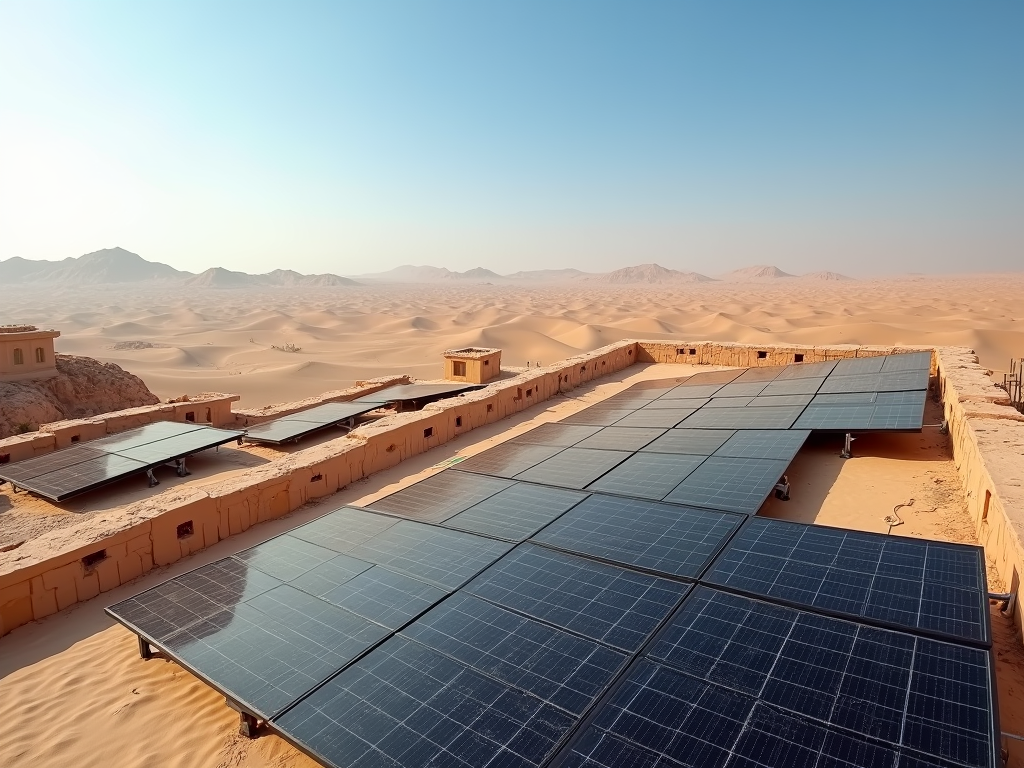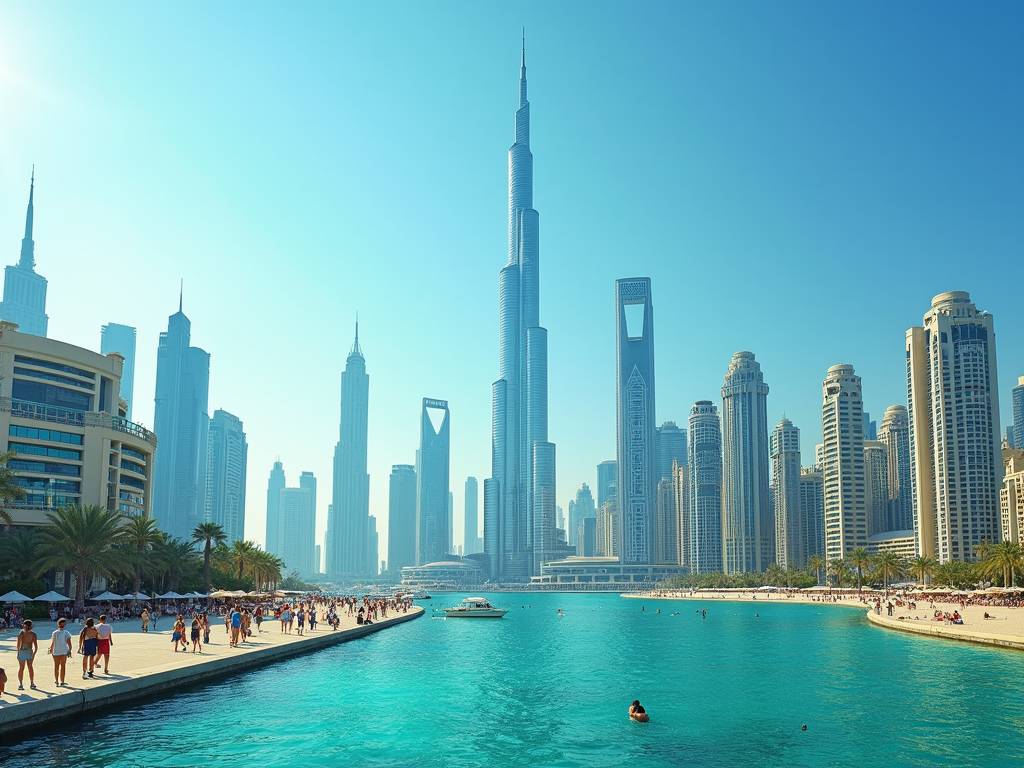Dubai’s economy is making remarkable strides in adapting to global business trends, reflecting a dynamic shift that enhances its competitiveness on the world stage. With its strategic location, diversified economy, and strong government initiatives, Dubai has positioned itself as a global business hub. This article delves into the multifaceted strategies that Dubai employs to harness global trends and align itself with international market demands. It explores the significance of technology, sustainable practices, and the diversification of its economic sectors. Ultimately, the adaptability of Dubai’s economy is a testament to its vision and leadership as it navigates the ever-evolving global landscape.
Embracing Technological Advancements

As the digital age takes center stage in global business, Dubai smartly integrates technology into its economy to keep pace with international trends. The government has rolled out ambitious initiatives to transform the emirate into a smart city, where innovation drives economic growth. This provides a robust framework for businesses to thrive and adapt to shifting consumer preferences. Some key technological advancements include:
- Blockchain Integration: Dubai has embraced blockchain technology, aiming to become the first city fully powered by this innovative solution by 2020.
- Artificial Intelligence (AI): The Dubai AI Strategy aims to position Dubai as a global leader in AI, enhancing services across various sectors.
- Smart Transportation: Investments in smart infrastructure tools like self-driving vehicles are forging links between technology and daily business operations.
These initiatives not only improve the efficiency of services offered but also attract foreign investment by creating an environment conducive to technological collaboration. Moreover, with the UAE government actively encouraging startup ecosystems, digital transformation in industries is accelerating at an unprecedented pace.
Focus on Sustainability and Green Practices

In response to global concerns regarding climate change and sustainability, Dubai is pivoting towards green practices, which are increasingly becoming a priority for businesses worldwide. The government-launched “Green Economy for Sustainable Development” initiative highlights this commitment. Here are some pivotal elements of this green shift:
- Renewable Energy Investments: With a goal to produce 75% of its energy from renewable sources by 2050, Dubai is spearheading initiatives in solar energy projects.
- Sustainable Urban Development: Innovative architectural designs incorporate sustainability into residential and commercial projects, further reducing carbon footprints.
- Waste Management Initiatives: Programs that emphasize recycling and sustainable waste disposal augment Dubai’s green transformation.
The transition to sustainability not only aligns Dubai with global environmental standards but also opens up new avenues for business growth, especially in green technology sectors. This shift resonates with international investors looking for environmentally responsible opportunities, positioning Dubai as an attractive market.
Diversification of Economic Sectors
To remain competitive in a volatile global market, Dubai has successfully diversified its economy beyond tourism and real estate. This strategic approach mitigates risks associated with over-reliance on a couple of sectors. The following sectors are receiving increased attention and investment:
- Financial Services: The Dubai Financial Market continues to attract international companies seeking a base in the MENA region.
- Technology and Innovation: With initiatives like Dubai Internet City, tech firms are flocking to the emirate to leverage its business-friendly environment.
- Logistics and Trade: The location of Dubai has solidified its reputation as a logistics hub, facilitating trade in goods across continents.
This diversification strategy fosters resilience against global economic fluctuations while encouraging innovation in multiple sectors. By creating a more balanced economic landscape, Dubai effectively attracts foreign direct investment and builds strategic partnerships globally.
The UAE government actively supports business adaptation to global trends through numerous incentives and initiatives tailored for both local and international enterprises. Several key initiatives include:
- Free Zones: The establishment of free zones allows foreign-owned companies to operate fully without local sponsorship, facilitating quick entry into the market.
- Tax Incentives: Minimal taxation policies, including no personal income tax, attract various businesses looking for favorable economic conditions.
- Support for SMEs: Government programs aimed at supporting small and medium enterprises (SMEs) bolster innovation and job creation in the region.
These initiatives reflect the government’s commitment to fostering a business-friendly environment that encourages innovation and growth. The collaborative relationship between the public sector and businesses ensures that adaptations are not just reactive but proactive, paving the way for sustainable economic health.
Conclusion
In summary, Dubai’s economy demonstrates a robust adaptability to global business trends through embracing technology, prioritizing sustainability, diversifying its economic sectors, and leveraging government support. This strategic positioning enables Dubai not only to attract investments but also to maintain its status as a leading global business hub. As the economy evolves, it will continue to adapt to global changes, ensuring that businesses within the emirate thrive in an interconnected world.
Frequently Asked Questions
1. How is Dubai ensuring sustainable business practices?
Through various initiatives like “Green Economy for Sustainable Development” and investments in renewable energy, Dubai encourages businesses to prioritize sustainability.
2. What role does technology play in Dubai’s economy?
Technology is integral to Dubai’s economic strategy, with initiatives in blockchain, AI, and smart transportation transforming how businesses operate and connect.
3. Why is economic diversification important for Dubai?
Diversification reduces dependency on specific sectors, mitigating risks from market fluctuations and enhancing resilience against global economic changes.
4. What support does the government provide to entrepreneurs in Dubai?
Dubai’s government offers incentives like free zones, tax incentives, and dedicated support for SMEs to foster an entrepreneurial ecosystem.
5. How does Dubai attract foreign investment?
With favorable economic conditions, investor-friendly policies, and a well-connected logistics framework, Dubai becomes an attractive destination for foreign investment.
